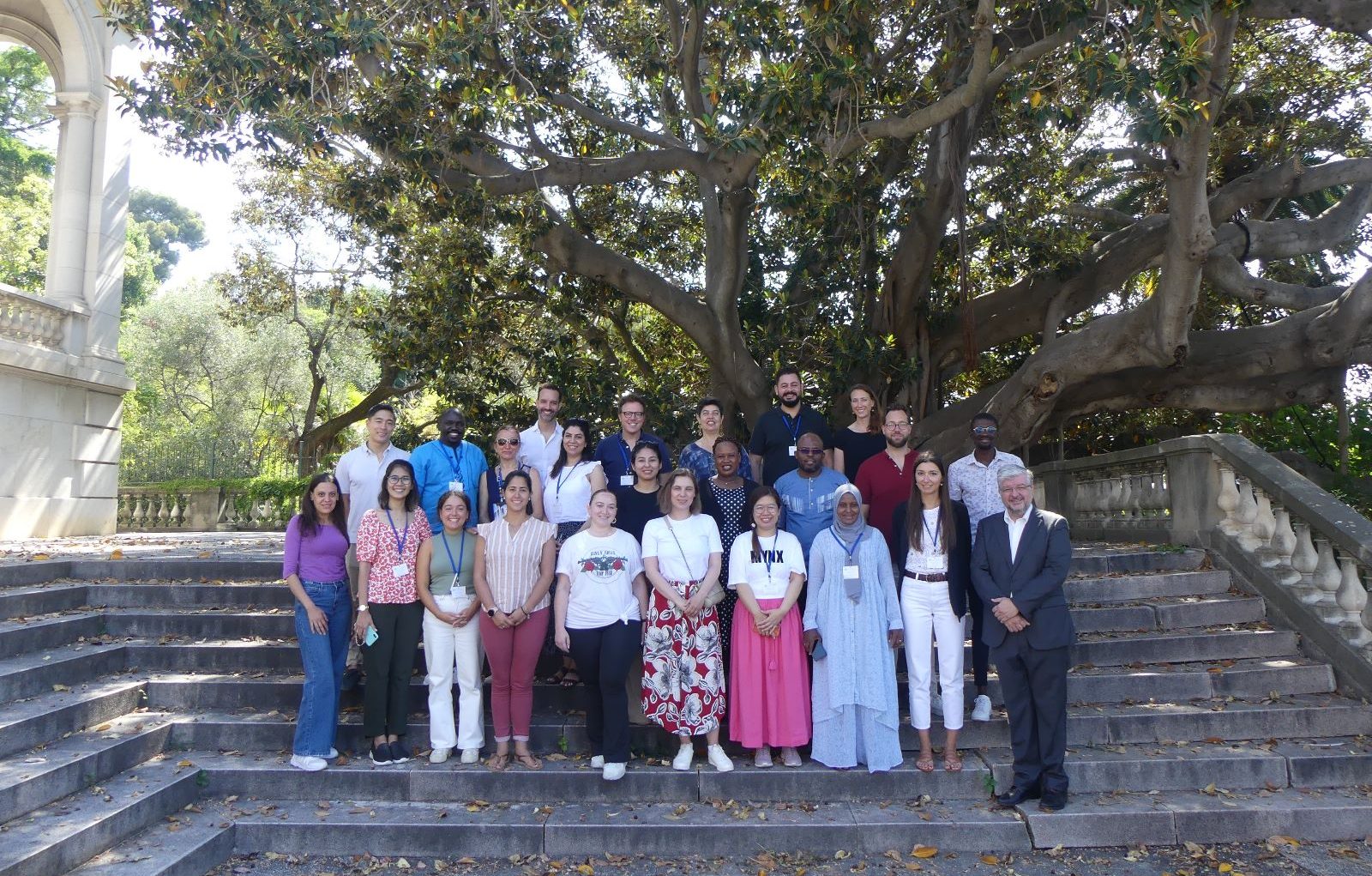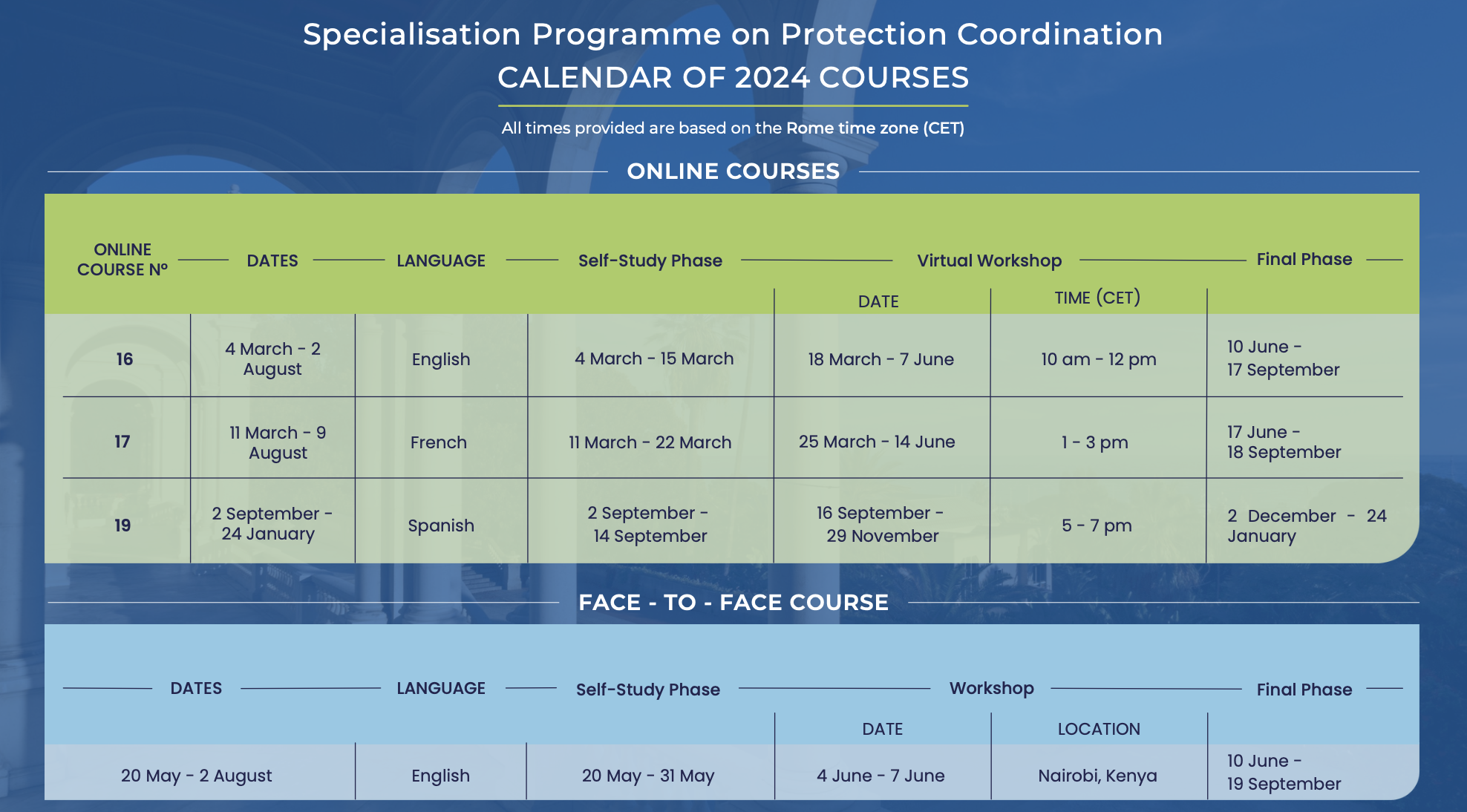The Specialisation Programme on Protection Coordination is an inter-agency blended learning programme for coordinators, co-coordinators and local actors engaged in Protection Coordination in field operations. It is specifically designed and developed to strengthen the skills needed for effective Protection Coordination and to encourage a collaborative and harmonised protection response.
The Course is organized and delivered by the Department of International Refugee Law and Migration Law of the Sanremo Institute, in collaboration with the Global Protection Cluster and its Areas of Responsibility (Child Protection, Gender-Based Violence, Housing, Land and Property and Mine Action).
Between 2021 and mid-2024, the SPPC Programme has been delivered 18 times in English, French and Spanish, to 402 participants coming from more than 50 different field operations.
This year, four programmes are scheduled in English, French and Spanish allowing all regions to participate. Three courses will be delivered online, whereas the Face-to-Face SPPC will take place on June 2024 and it will be held in Nairobi (Kenya).
The Programme specifically targets coordinators, co-coordinators and local actors in field operations, from UN agencies to government counterparts and NGO partners. To fully benefit and actively participate in the Programme, some knowledge, exposure to and/or experience with Protection Coordination is recommended. A limited number of applications are selected to ensure the interaction of the sessions.
Applications to the Programme are opened several times a year and are disseminated to corresponding target audience by the Global Protection Cluster and the Areas of Responsibility.
The programme takes place over a period of six months and is divided into 3 phases:


